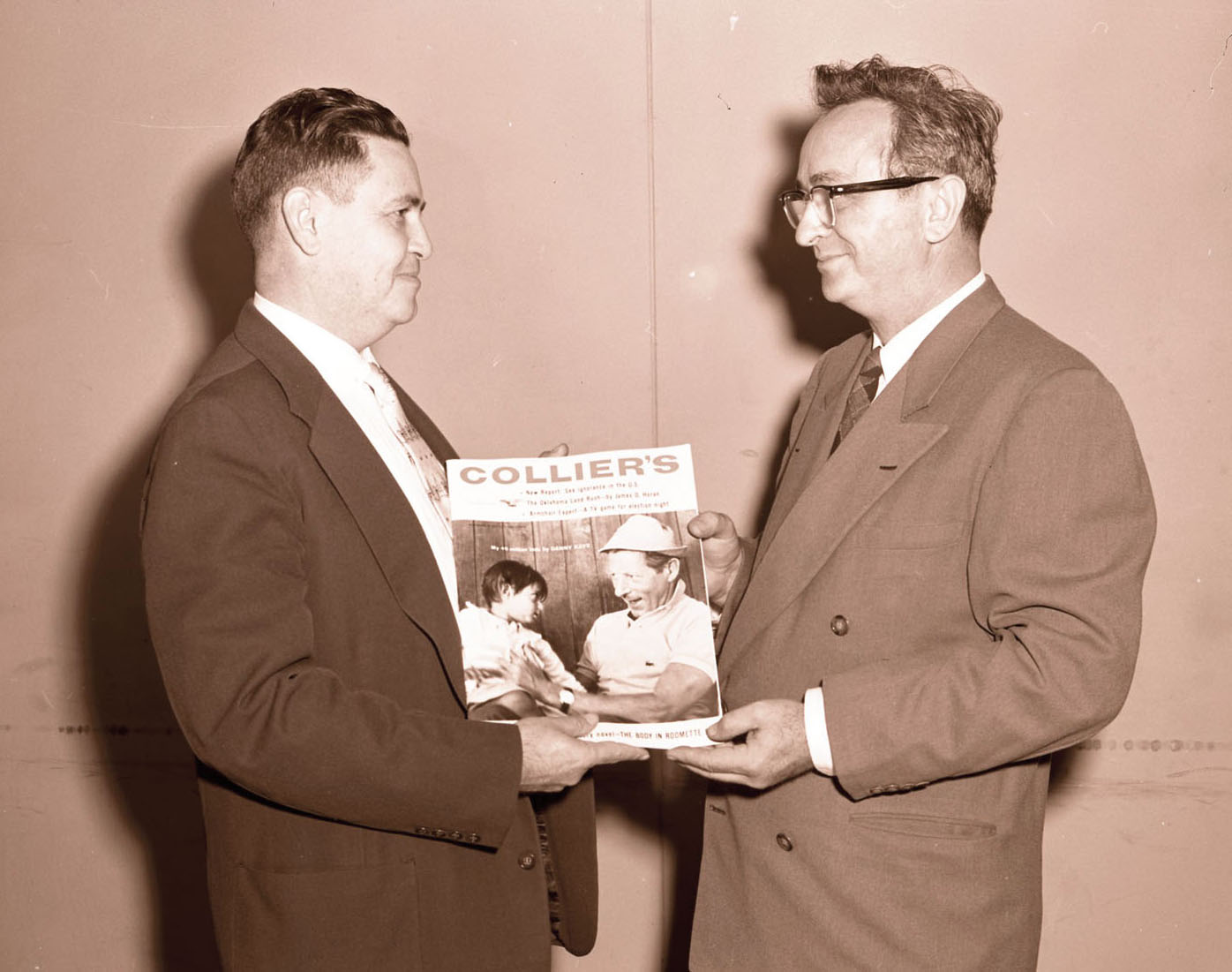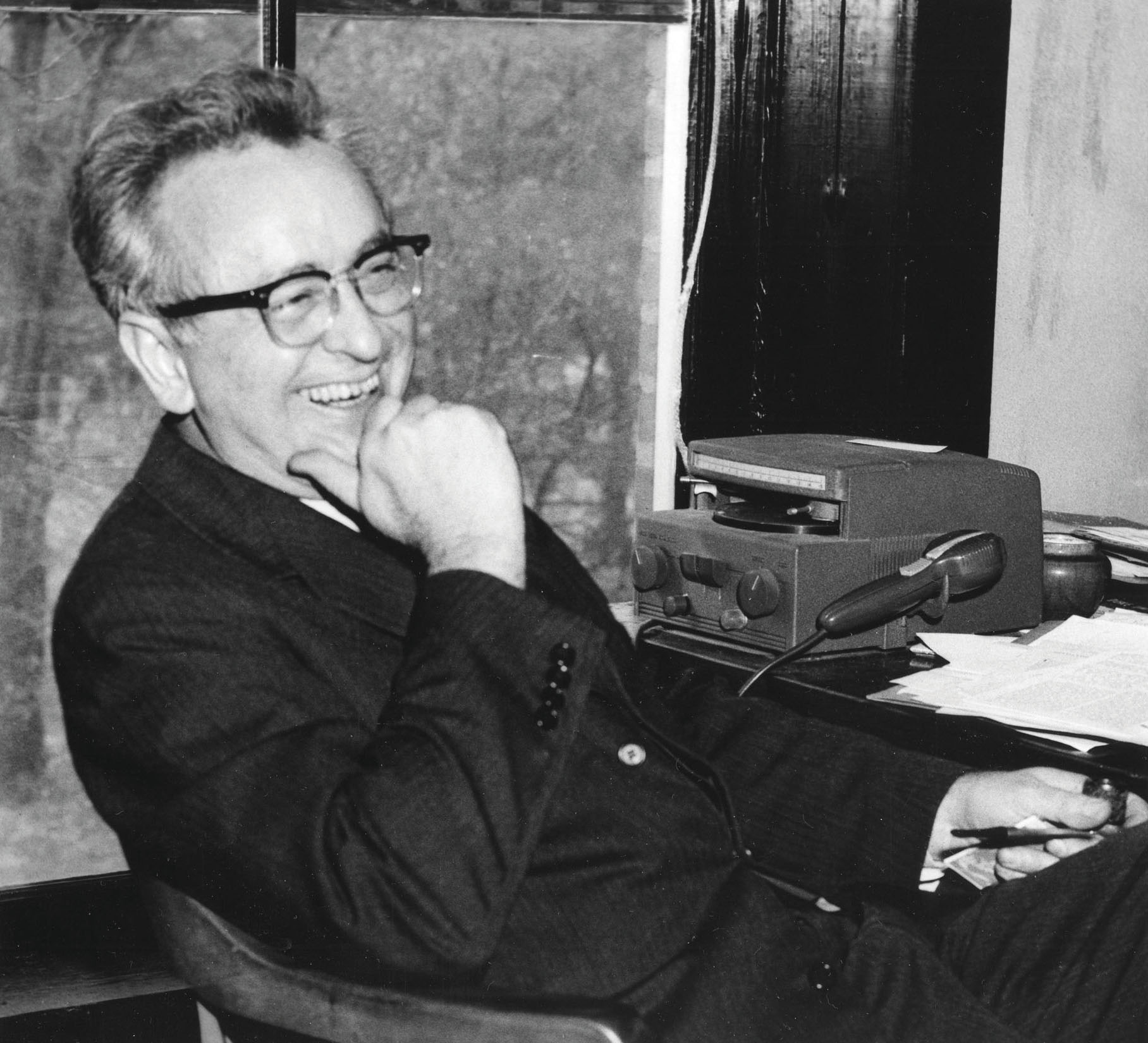Did you know there was a Duke professor who authored both a nationally distributed Sex Knowledge Inventory and a Little Golden Book? When I came across his unusual name, Gelolo McHugh, I couldn’t help but be curious, and in the search to find out more discovered an unexpected Duke story about research that was in some ways ahead of its time.
Gelolo McHugh was born in 1907 in South Carolina. Before pursuing his doctorate at Columbia, he worked in the Merchant Marine and for the New York City Department of Public Welfare, where he became interested in family psychology. He served as an instructor in psychology at Barnard before moving to Durham in 1946, with his wife and two sons, to become an assistant professor at Duke. A newspaper article written several years later described him as “a round faced man with happy blue eyes and with his gray hair in a constant state of confusion. He smokes a pipe and drinks many cups of coffee a day, coffee that he grinds and makes himself – an emulsion instead of the customary brew.”
At Duke he taught child, adolescent, and social psychology. One of his courses, “Preparation for Parenthood,” was especially popular, advising students on the “proper treatment of children in both childhood and adolescent stages.” McHugh said he wasn’t surprised that his students were men as well as women. “In our present society, men are beginning to realize that they have a grave and undeniable responsibility in the rearing of their children. And incidentally, they are finding out that their own fathers missed a lot of fun.” He offered parenting lectures to the public as early as 1948 through churches and local organizations, something that became common decades later but was unusual at the time.
McHugh was a regularly quoted expert in popular magazines, including Collier’s, Redbook, McCall’s and Look. His words of advice were also reprinted in newspapers across the country. For several years in the 1950s, his advice about explaining Santa to children – honestly and at an appropriate developmental age – appeared every December. Other articles touched on picky eating (“There is no relation between the real sweetness and goodness of little children and their food consumption.”) and teaching children about generosity (“The child who feels that he can count on fair treatment from his parents finds it easier to be unselfish.”). Interested in reaching wide audiences, he wrote the Little Golden Book “Baby’s House” (1950). It is still in print today.
Later in the 1950s McHugh developed a survey that he called the Sex Knowledge Inventory (SKI), a tool meant to be used by ministers, doctors or others who provided pre- or post-marriage counseling. The Inventory asked a variety of multiple-choice questions on topics ranging from human anatomy to menstruation and menopause to sexual pleasure. The questions are asked in a surprisingly nonjudgmental way for the time and were used to establish or work toward couples sharing similar understandings about sexual health and relationships.

McHugh published SKI himself, through his imprint Family Life Publications. By the 1960s he said that thousands of churches, synagogues, medical professionals and therapists used it to counsel high school students, college students and couples. Family Life Publications was originally based out of a P.O. box at Duke, but in response to a 1961 complaint sent to Duke’s administration about the content of the Inventory, Provost Marcus Hobbs wrote to McHugh to articulate Duke’s view of the matter:
“I trust it has been made clear that you should not use any titles, letterheads, etc., that in any way involve the University or your connection with the University. The basis of this is again that it is entirely a private enterprise and not a part of your University related research and is in no way supported by the University. It is an activity especially susceptible to misdirection if not kept in quite competent hands and the University would take a very dim view of any association which could leave it liable in fact or by association. This letter is not meant to disparage your efforts in this area. It is meant only to have recorded our understanding of the endeavor and our view that you participate in this as a psychologist on your own time and initiative and not as a member of the staff of the University.”
McHugh continued to forge his own path, taking a leave of absence in the early 1960s from the department to work on a project focusing on patient rehabilitation after hospital discharge, along with Drs. Wilbur C. Davison and James Semans. McHugh also served as a consultant to a General Electric training film called “The Inner Man Steps Out,” which asked managers to feel empathy with their workers. He also later consulted on the 1964 film “Black Like Me.”
In addition, McHugh kept publishing through Family Life Publications, including “A Courtship Analysis and A Dating Problems Checklist.” He also created other inventories based on the original SKI: the Venereal Disease Knowledge Inventory, a Drug Knowledge Inventory and an Alcohol Knowledge Inventory. He saw these as tools for clear information and demystification. As he told Lookin 1970, “We’ve classified the use of drugs as very, very bad. Young people need objective information if they are to believe this. They need facts about drugs to make intelligent behavior choices … if someone teaches him the facts without threatening him, he is more likely not to experiment with drugs.” After his retirement from the faculty in 1970, McHugh lived in Saluda, North Carolina, where he died in 1981. McHugh was an unconventional faculty member at Duke, but his work helped popularize parenting classes and age-appropriate sex education. He received criticism from some who felt the publications were too explicit about the issues they focused on. The areas he studied – sex, drugs, struggles with parenting, challenges of adolescence – remained complicated and at times hard to talk about, but McHugh introduced an empathetic and fact-based approach to make having such conversations a little easier.
